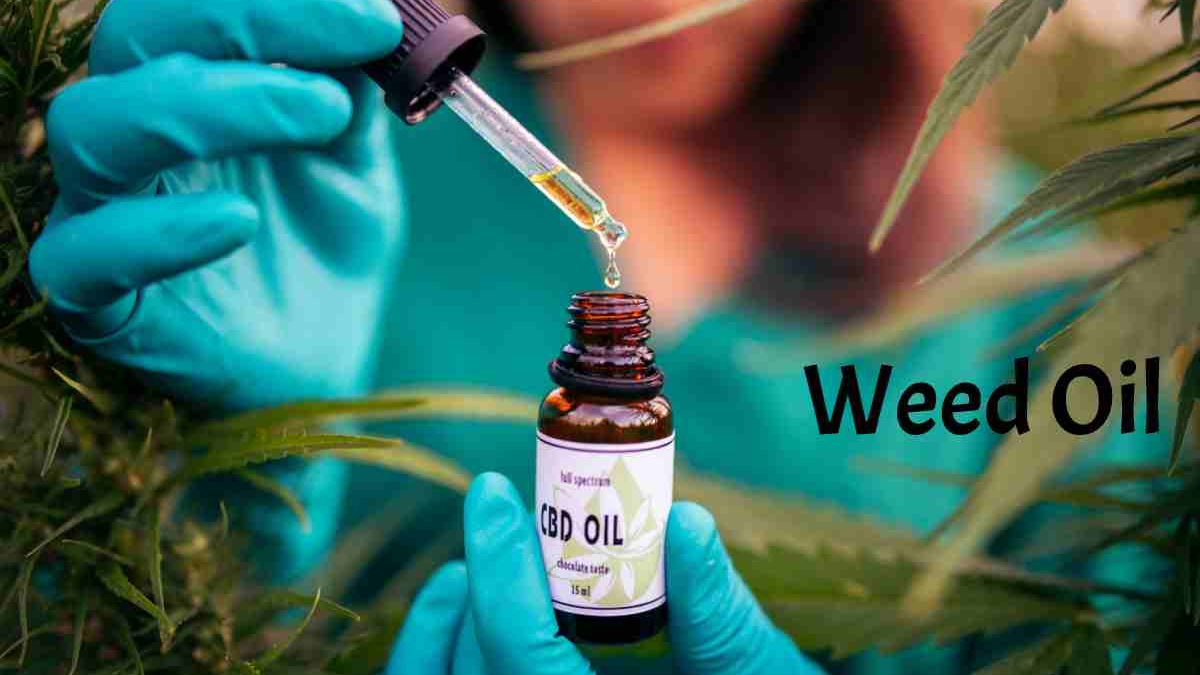Weed Oil, Cannabidiol, or CBD, remains a chemical compound in the Cannabis Sativa plant. CBD interrelates with neuroreceptors in your organization when applied topically or spent through smoke sniff or fit for human consumption. Weed Oil Which send signals between your cells to help regulate your movement, mood, homeostasis, and immune system.
Table of Contents
CBD Oil: 5 Science-Backed Benefits
1. Compensate for anxiety and depression
The calming ability of CBD is perhaps its most popular effect and why its use remains so widespread. A 2017 education in the Brazilian Journal of Psychotherapy assessed the nervousness levels of 57 men in a fake public speaking test. Some received a placebo. At the same time, others received 150 milligrams and 300 milligrams. Or 600 milligrams of CBD earlier in their speeches. Those who conventional 300 milligrams of CBD experienced significantly less anxiety during the test than those who received the placebo. Interestingly, the participants who received 150 or 600 milligrams of CBD experienced more stress during the test than in the 300-milligram collection.
Meanwhile. At least one study in mice revealed that CBD had similar effects to the antidepressant imipramine. However, human trials are needed to confirm whether CBD can induce this same downer response in our bodies.
2. Treat select epilepsy syndromes -Weed Oil
In some cases, CBD can be used to pleasure epileptic seizures.
In 2018. The Food and Medication Administration (FDA) accepted the use of CBD below the brand name Peridiole to treat seizures resulting from Lennox-Gas taut syndrome and Dravet condition, two infrequent forms of epilepsy, in patients aged at least two years.
Three well-studied studies provide the basis of provision for the FDA’s decision. In these trials, 516 patients with Lennox-Gas taut syndrome or Dravet syndrome received Peridiole or a placebo. Peridot, when taken along with other prescription medications, decreased members’ seizure frequency likened to placebo.
3. Reduce PTSD symptoms -Weed Oil
In a small 2018 study in the Periodical of Other and Complementary Medicine. 11 people with post-traumatic stress illness (PTSD) received CBD and routine psychiatric maintenance for eight weeks at a psychiatric outpatient clinic. Ten of the 11 experienced a reduction in their PTSD symptoms. CBD was generally well stood. The researchers write.
Margaret Rajni, an RN with a background in medical cannabis and CBD, highlights the rank of using the therapy in conjunction with any cannabis or CBD for PTSD. “There’s an amount of therapy needed for PTSD,” she says. “But CBD will give you a slight bit of reduced anxiety.
4 other human trials from 2012 to 2016 propose that CBD reduces PTSD indications, although some include THC or tetrahydrocannabinol. The main mind-altering element in cannabis. When THC and CBD work composed. For example, they create an [entourage effect], completing each other’s benefits and strengths. Taking a similar dose of THC and CBD formulated blunts the “high” of THC, while just a little bit of THC combined with more CBD enhances the effects of CBD.
4. Treat opioid addiction, Weed Oil
Some studies. Both preclinical animal and human clinical trials. Suggest that CBD could remain used to help treat people who are dependent on opioids.
In 1 such study. Researchers managed CBD for people with heroin use illness. Over a week, CBD significantly reduced cue-persuaded cravings, removal anxiety, resting heart rate, and salivary cortisol levels in heroin users. No thoughtful adverse effects remained found
Other studies find that CBD helps reduce psychiatric and medical symptoms such as anxiety, insomnia, and pain in patients with substance use illnesses, indicating that CBD may be an real action for opioid addiction. However, more studies are necessary.
5. Relieve ALS indications
Amyotrophic lateral sclerosis (ALS) remains a disease that reasons nerve cells in the brain and spinal cord to deteriorate, leading to muscle control damage that worsens over time. It is not yet unspoken closely why ALS occurs, although it can be genetic in some cases. There is no known cure. And there remain only two FDA-approved medications to help treat the symptoms of ALS.
Research suggests that people with ALS may benefit from the milieu effect formed by the combination of THC and CBD, like people with PTSD. In a 2019 study. Patients were given a variety of THC and CBD in varying doses based on their needs and preferences. Those with mild or moderate. Or severe spasticity (muscle stiffness and tension) due to ALS reported high satisfaction with treatment. Those with reasonable to severe spasticity reported higher gratification rates than those with spasticity.
Conclusion
Cannabidiol (CBD) is an oil resulting from the cannabis plant. Possible health assistances include reducing irritation and pain. However, it is not allowed in all states, and there may also be some dangers.


